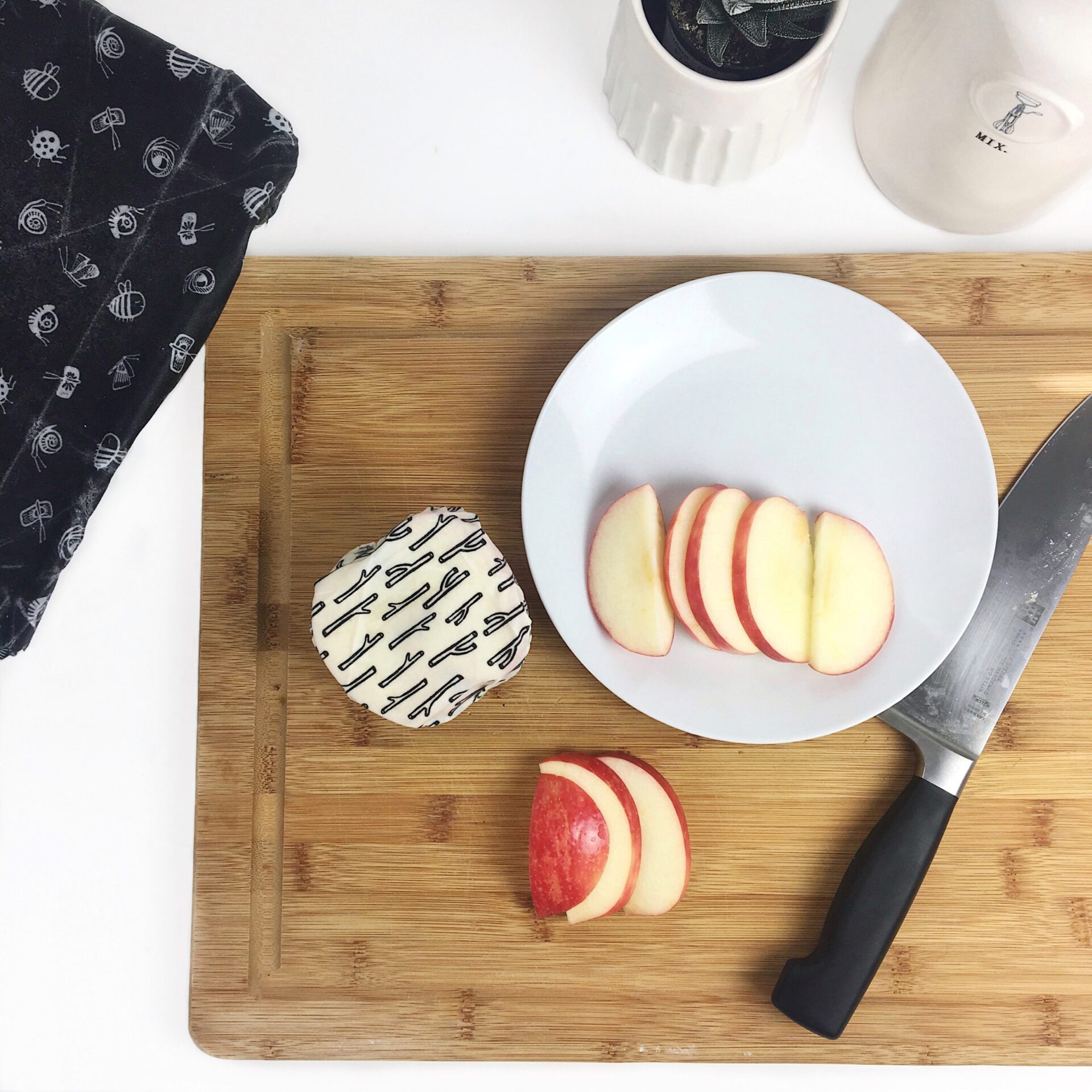As a dietitian, I’m passionate about making healthy eating as simple and stress-free as possible, but I’ve also recently become aware of the amount of food and food-related waste that my household produces. I’ve been making a conscious effort to be more mindful and reduce waste where I can – I’ve started using plastic-free food wrap, like Goldilocks wraps, I try to bring reusable bags when grocery shopping, and plan my meals around my schedule each week to reduce food waste as much as possible.
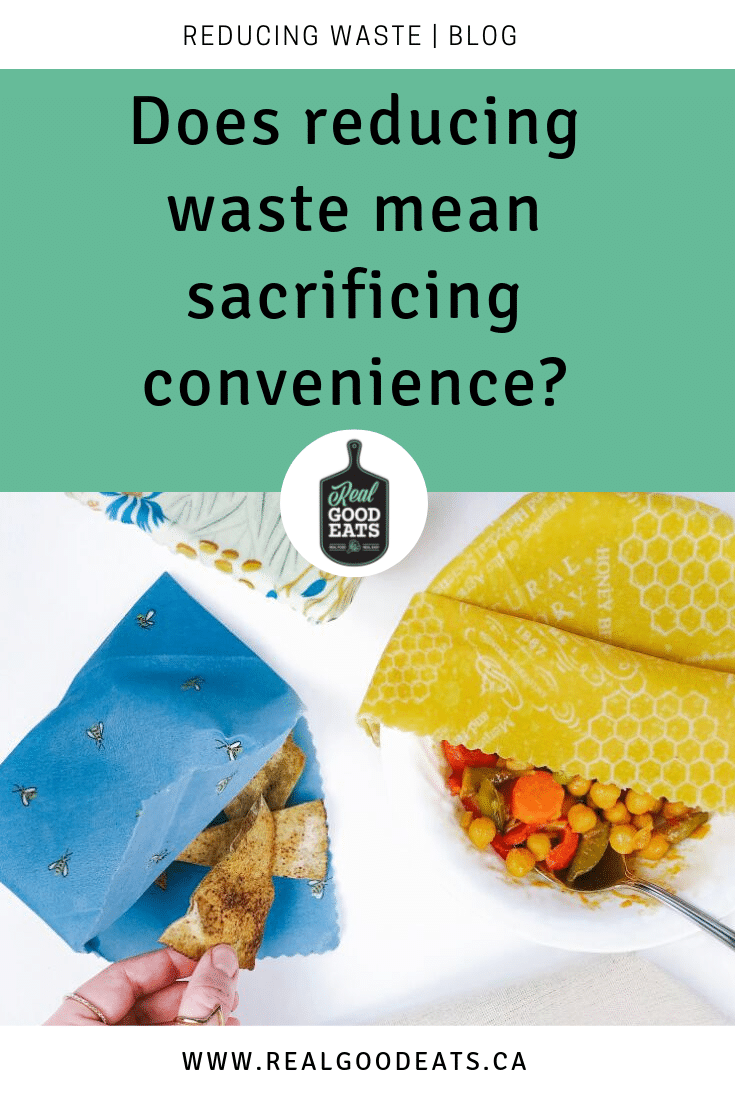
Last April, Real Good Eats ran a 2-week low-waste campaign sharing tips for reducing food and food-related waste, and I challenged myself to live plastic-free for the duration of the campaign. I headed into my first week armed with everything I thought I would need – reusable bags, water bottles, all the plastic-free food storage I could get my hands on, and stainless steel straws (I never use plastic straws but felt I needed these). Read more about 5 Products that Help Reduce Food-Related Plastic Waste.
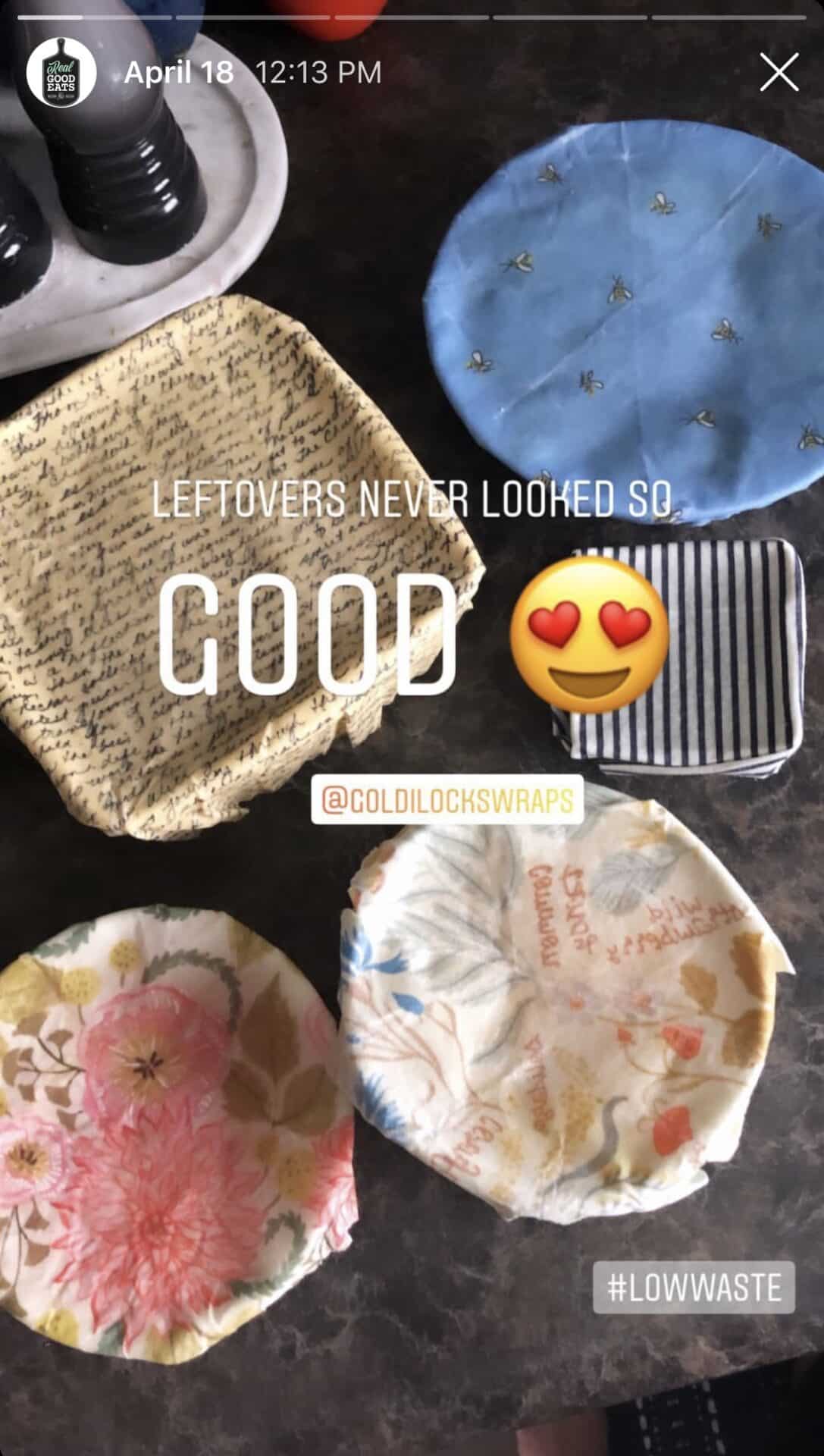
As much as I would love to say that my attempt at plastic-free living was a success, it was far from it. I was immediately discouraged when I forgot my reusable bags at my first attempt with plastic-free grocery shopping. Despite using reusable grocery bags for years, I was in a rush and somehow ran out the door without them.
The guilt piled on as I peeled the plastic wrap from my usual grab-n-go snack bar in the middle of a busy day, and reached into a bag of frozen shrimp as a quick protein for dinner later that week. I quickly realized that despite my best efforts, I had a long way to go. So I made changes for the remainder of the challenge – I brought trail mix in a mason jar instead of a snack bar and was sure to keep grocery bags in the trunk for future unplanned grocery store stops, but I was far from plastic-free.
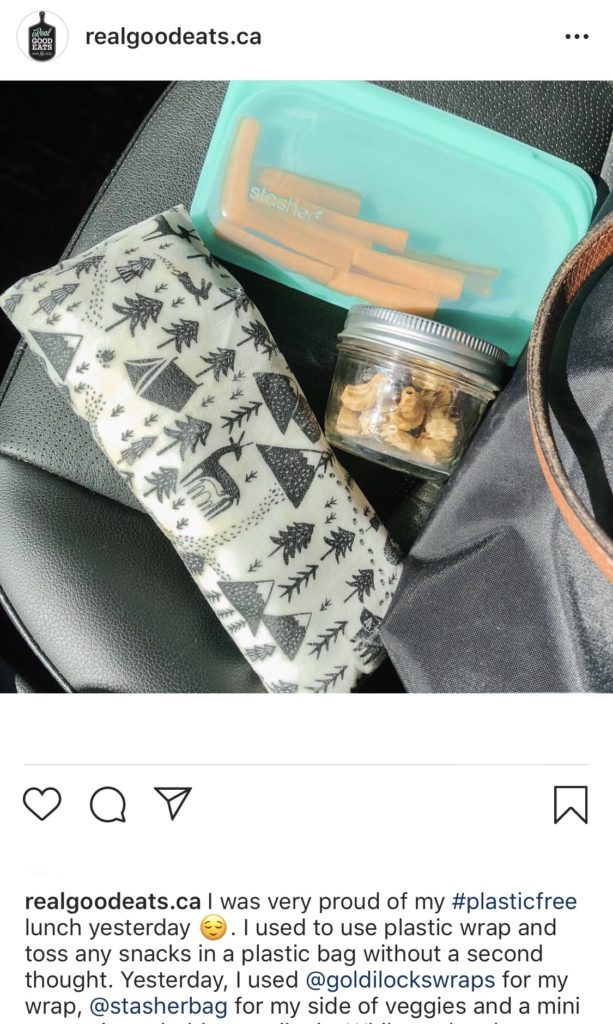
This challenge made me highly aware of the additional plastic that I was using in my weekly routine without even noticing. There’s no denying that food and food-related waste is a huge issue, and one that we all need to be more conscious of, but I struggled with the idea that this meant giving up on convenience.
I often rely on frozen veggies or fish, pre-washed greens, and snack bars to get through a busy week. Healthy eating can be tough when on the go, and I rely on healthy convenience foods to stay on track and keep my sanity. Read about the 15 Packaged Foods that I Can’t Live Without. I was overwhelmed with the thought of the additional prep that I needed to add to my routine to be waste-free – making homemade snack bars, washing greens, avoiding frozen products altogether, only cooking with produce in season to avoid unnecessary packaging, additional stops at the bulk food store. Not to mention the non-food-related plastics (hello toothpaste, shampoo bottles, tampons, online delivery packaging. Ugh!). One scroll through the #zerowaste feed on IG had me completely overwhelmed. I wanted to give up. Then I came across this quote:
“We don’t need a handful of people doing zero waste perfectly. We need millions of people doing it imperfectly.” – Anne Marie Bonneau @zerowastechef
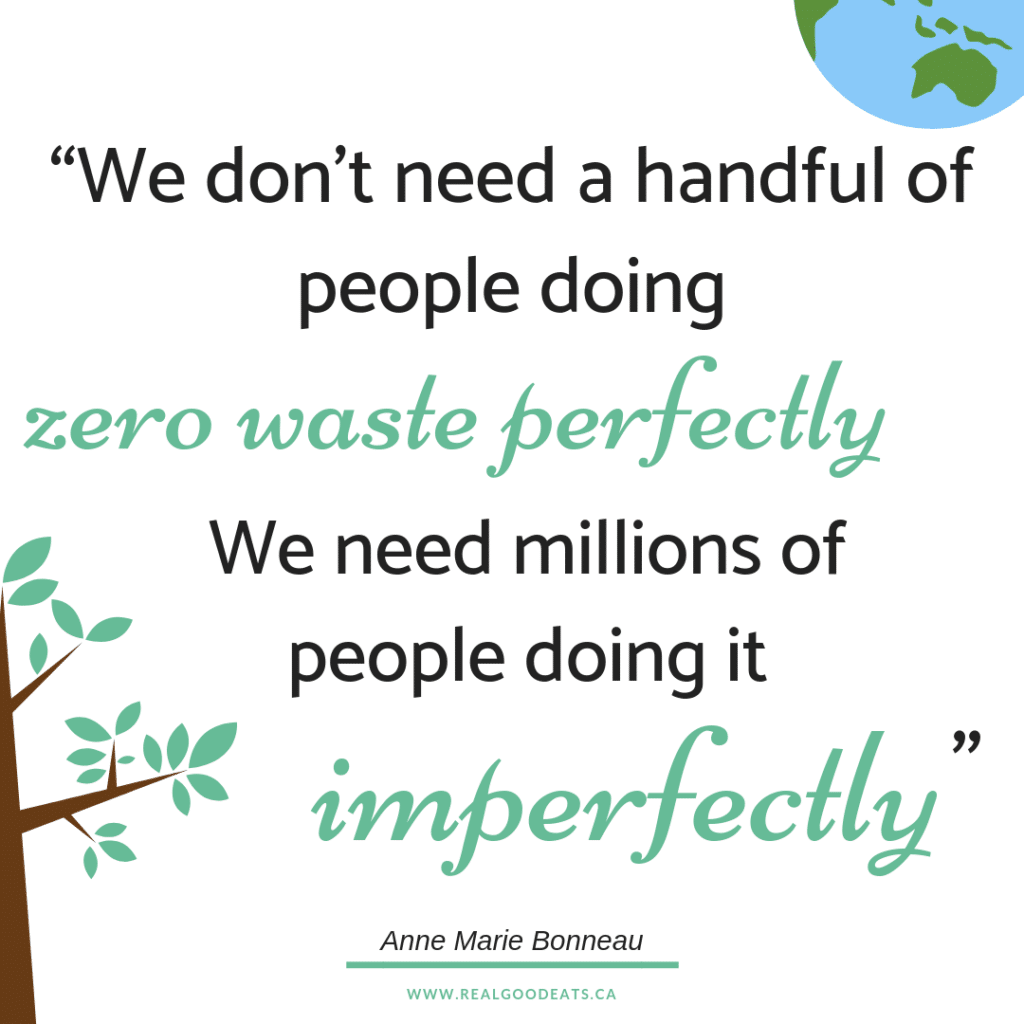
I was so caught up with doing zero-waste perfectly that my small failures were masking any progress I was actually making. This quote reminded me that reducing waste doesn’t have to be all-or-nothing and reassured me that the small changes I had made were steps in the right direction.
Reducing waste is a process, not a lifestyle, and it will look different for everyone. For me, this means continuing to make a conscious effort to reduce my use of unnecessary plastic but allowing myself to use convenience items when necessary. It means using a reusable water bottle, making coffee at home, bringing my reusable grocery bags (I try to leave extras in the car now!), choosing non-packaged items when I can, and using plastic-free food storage as much as possible. But it also means continuing to rely on frozen foods, grab-and-go snacks, and pre-prepped veggies when I need to. If we all make even one small change at a time to reduce the amount of plastic we go through, that alone will make a huge difference.
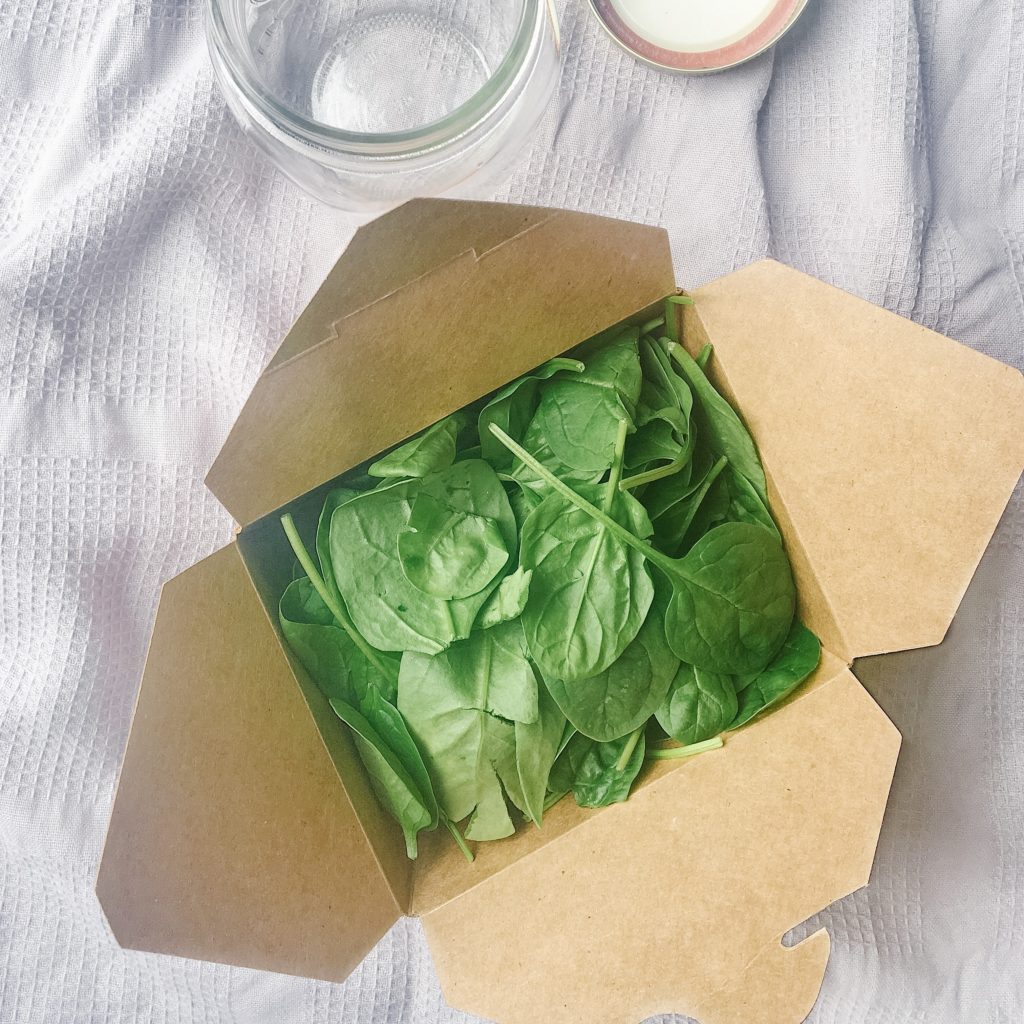
You’ll also continue to see both tips to reduce food waste, and healthy convenience foods highlighted here at Real Good Eats because I know I’m not alone. I’m calling it balanced low-waste living.
What does balanced low-waste living look like for you? Comment below and let us know!
Don’t miss a thing! Subscribe to receive the latest recipes and healthy eating tips straight to your inbox! ?
[yikes-mailchimp form=”2″]
About Brittany

Hi there! I am a registered dietitian and I ? food! I am passionate about making it easier for busy people to eat well by sharing quick and healthy recipes. Healthy cooking at home can seem overwhelming, but it doesn’t have to be. I love helping people uncomplicate weeknight dinners and reduce stress around meal time, so I’m so glad you’re here!

